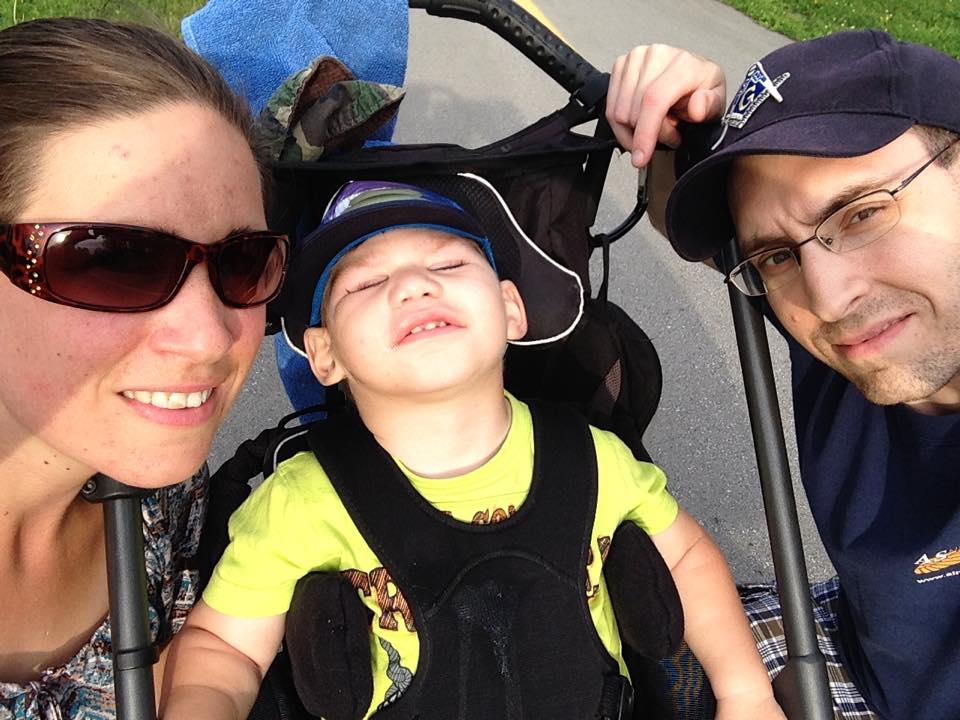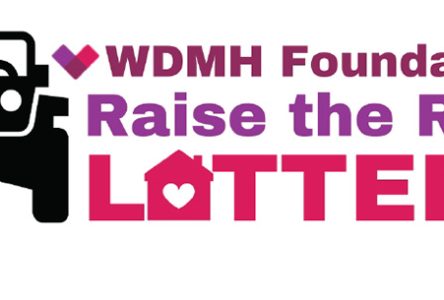CORNWALL, Ontario – It’s not easy being green, but Josh and Stacey Fraser wouldn’t have it any other way.
The couple, and their son Wyatt, are wearing green Wednesday to mark World Cerebral Palsy Day.
Wyatt, 2, was diagnosed with CP shortly after birth. Doctors knew, almost immediately, that there were challenges ahead for the couple and their son.
“There was a lack of oxygen to his brain which was caused by a placental hemorrhage,” said Stacey. “At four months we started seeing signs of it. But we were pretty much red-flagged already because we knew something would happen. We knew he wasn’t walking away scot-free.”
Indeed, Wyatt faces a myriad of health issues. He regularly endures seizures, will be bound to a wheelchair for the rest of his life, has vision issues, impaired motor functions and requires a feeding tube to receive nourishment.
“As he’s growing, we’re facing more challenges,” said Stacey. “He’s getting bigger, which makes it harder to move him around into cars and different places.
“Also, shopping alone is a challenge. You have cart, and then also push around a wheelchair as well.”
But all of this is not to suggest the Frasers are complaining…not at all. They love their son – that much is clear – and while this is not the parental journey they had in mind when Stacey became pregnant, their devotion to Wyatt is paramount.
Not unlike any other family.
“I think it’s just as rewarding, it’s just different,” said Josh. “We do what he needs and we figure out how to work around it. It really does change your perspective on life…for the good.
“It really changes what you kind of think as being important in your life. We had a chance to move far, far away (for work) but we turned it down because it wasn’t the right thing for Wyatt. Everything we do now, we do it for him.”
The couple, like any other parent, celebrates milestones that Wyatt achieves…though with a different definition than most.
“We call them ‘inchstones’,” Josh said with a laugh.
Those ‘inchstones’ include the first time Wyatt smiled, or laughed, or managed to put his hand in his mouth.
“That wasn’t a big thing for a normal parent, but for us it was huge,” said Stacey, with her husband readily agreeing.
“When he finally figures out how to do something…it’s pretty cool,” said Josh.
CP is caused by a brain injury or problem that occurs during pregnancy or birth or within the first three years of a child’s life. It can be caused by premature birth or not getting enough blood, oxygen, or other nutrients before or during birth.
The disorder impairs control of movement due to damage to the developing brain which does not continue to worsen throughout life.
The problems the Frasers now face are mostly centred on educating others about their son’s condition, and lobbying government-types for more funding to help families that include someone with CP.
“I’ve noticed that, since I work in the school system, there’s all this awareness for Down syndrome and autism, but I’ve noticed there’s not much on CP awareness,” said Stacey.
It is estimated that hundreds of thousands of children and adults in North America manifest one or more of the symptoms of cerebral palsy. Currently, about 8,000 babies and infants are diagnosed with the condition each year. In addition, some 1,200 – 1,500 preschool age children are recognized each year to have cerebral palsy.
“It’s the number one physical disability for children in the world,” said Josh. “There’s not a whole lot of funding supports as well. That’s a problem. The Ontario government does a piss-poor job of helping kids with special needs.”
And while the couple could talk about the negatives of raising a special needs child until the cows come home, they be;ieve the positives far outweigh any argument about what could have been.
“There’s a lot of people – neat and interesting people – we never would have met and friends we would have never met,” said Stacey. “I could have stayed home and been a stay-at-home parent for Wyatt, but I felt that if I did that I wouldn’t be helping him. He gets much more social interaction with the kids at daycare, and they are teaching him things that we wouldn’t be able to teach him, and he’s teaching them things.
“They just see him as another kid to play with. When I brought him back to daycare they said: ‘Oh Wyatt is back’, not ‘The kid in the wheelchair is back.'”
Josh said the CP community is as tightly-knit as one will find: “We’ve learned there’s a whole community out there who has kids with CP of varying degrees. They’re all very supportive of each other when you need advice…or just to talk to each other.”
And they know their son is aware of his surroundings, and how important he is to his parents.
“One of the big things we were told is that most children with CP are extremely smart, but they’re trapped in their own body,” said Stacey. “He knows what’s going on, he just can’t express it.”



